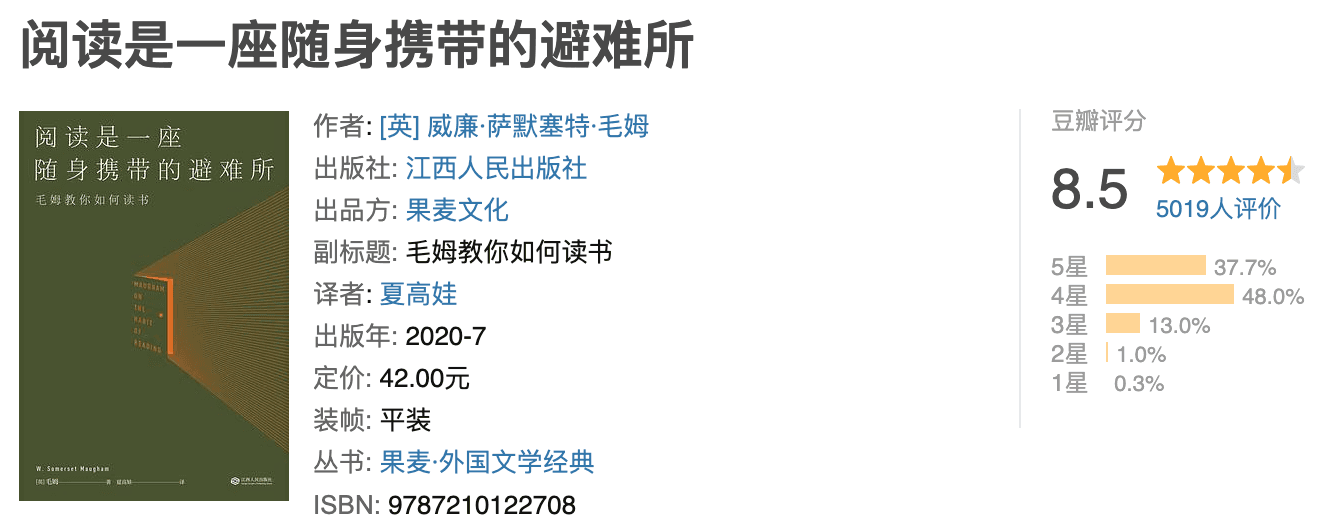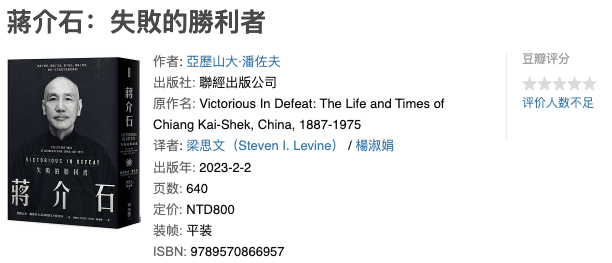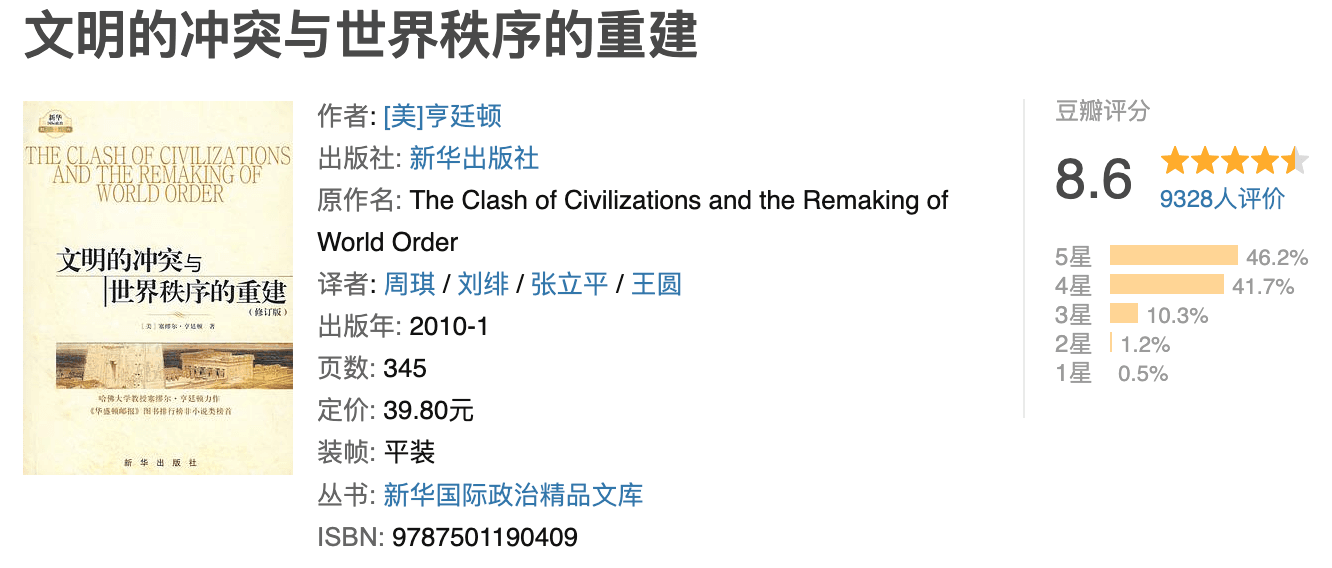"The Three-Body Problem"#

Taking advantage of the popularity of the TV series "The Three-Body Problem," I picked up this science fiction book that I've wanted to read for a long time. Actually, I never finished watching the TV series, and I can list many specific reasons, but I just want to say one thing, which is that the motivations of many characters are inexplicable, in other words, the ability to tell a story is slightly lacking.
I thought it was a problem with the TV series, but after reading the first book, I realized that the problem still exists in the novel, just not as severe. As a novel, the most taboo thing is to make readers think: How could this character do such a thing?
Of course, a simpler explanation is: I'm not suitable for this book.
"Reading is a Portable Refuge"#

I skimmed through some of the interesting content and gained a lot. For example, Maugham's description of Dostoevsky made me rethink Dostoevsky - he had a bad character, was morally corrupt, and jealous by nature, and throughout his life, he was manipulated by his own passions. If he were not so wise or so twisted and evil, these passions would be enough to make him absurd and pitiful.
In addition to this book, I also read Maugham's "The Summing Up" and "A Writer's Notebook," but I haven't finished reading them. These should be the last Maugham works I've read recently.
"Chiang Kai-shek: The Failed Victor"#

The book is well-written, with ample and powerful quotations. It is also quite interesting. He was sensitive and impulsive, and would resign in anger when his ambitions were not recognized; he was also debauched and even indulged in women, visiting brothels as a regular habit. A vivid character.
I haven't finished reading it yet, but I should find it very interesting when I do.
"The Clash of Civilizations and the Remaking of World Order"#

Currently reading, shifting my focus back to non-fiction works.
Civilization is an amplified culture, and the clash of civilizations refers to conflicts caused by cultural differences. People always try to divide others into "us" and "them," as the saying goes, "People from different tribes have different hearts." Under this kind of thinking, conflicts are inevitable.
Throughout history, due to technological limitations, cross-regional communication was not possible, and cultural differences could not be manifested. With the development of technology, the exchange of different cultures has become more frequent, resulting in more and more conflicts, and even many tragic ethnic cleansings.
Upon careful consideration, doesn't this have some similarities to certain characteristics of the internet age?